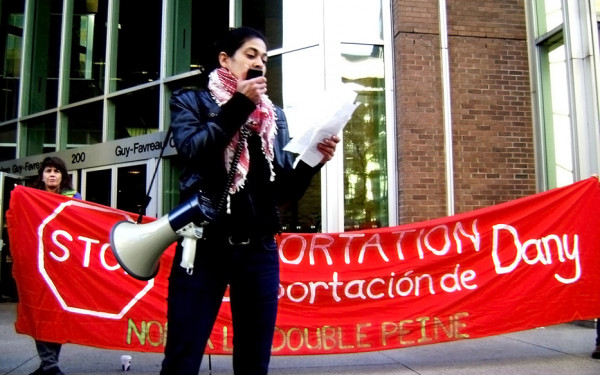One Foot Forward for Prostitution Laws
Canada just took a big step towards modernizing its prostitution laws. On Sept. 28, the Ontario Superior Court struck down articles 210, 212 and 213 in the Criminal Code, which will no longer prohibit sex workers from working in brothels, communicating for the purposes of prostitution and living off the avails of their trade.
However, the discourse around this country that has developed as a result of the decision of the Supreme Court of Ontario has shown us all just how far we still have to go.
The major problem with the rhetoric surrounding the court decision is that prostitution work is still being demonized in the media and this is seen as perfectly legitimate. At best, prostitutes are seen by the general public and by those in our government as a particularly sad brand of sick dog that, while they could use our help, should probably just be separated from society as much as possible to avoid contamination.
The general consensus seems to be that, while sex work is probably the least desirable service industry one could ever hope to enter (take a good look at the kid giving you your McDonald’s bag before you make that assertion), we should at least be making sure these sort of humans don’t get killed, since, you know, dead prostitutes aren’t great for business.
For example, sex-trafficking “expert” Lisa Thompson, formerly of the National Association of Evangelicals, says “prostitution is not an option that appeals to most women,” so, by this logic, they are all sad charity cases. Seeing as how there is precious little data on prostitutes in this country, how exactly is it assumed as a given that most of them are crack-addicted, homeless, sad people? How are we to assume that the majority of these women are sex workers “against their will?” Of course, I have a harder time formulating a counter-argument to Thompson’s position that “God didn’t create any human being for the purpose of being a prostitute.” Perhaps God fucked up and created prostitutes while he was creating drugs and Lisa Thompson while getting high during the sixth day?
Am I being a little bit unfair about the way prostitutes are being depicted in our public discourse? I don’t think so. Take a look at a few quotes from some of the people holding the hammer when it comes to enforcing Canada’s laws and tell me if you can find any mention of worry over the health and security of prostitutes.
“[Ihe laws are] not meant to protect people in the sex trade… it’s used to protect a community.” That is actually a direct quote from Toronto Police Insp. Howie Page.More from Conservative Justice Minister Rob Nicholson: “Prostitution is a problem that harms individuals and it harms communities.”
This idea of a “community” seems to be a generational thing. To people over a certain age, their “community” is an idealized, utopian wonderland where their kids can play in candy-coated streets and they don’t have to worry about nefarious drug-dealers or sex workers shattering the perfectly monotonous harmony of their lunchtime stickball game in the tall grass of a pastoral paradise.
To younger people, our community is where we actually live. Which tends to include people like visible minorities, drug dealers and, yes, prostitutes. So, for us, a safer community includes safety for prostitutes.
The real question that Canadians have to answer has nothing to do with issues of vague legalese in relation to our relatively new charter. The question we have to answer is: Do we think prostitutes are somehow less valuable members of our “communities” than other people because of the work they do? What is legal between two consenting adults in private? Until we can collectively answer these questions, the lawyers and the cops are really just going through the motions, reinforcing the prejudices of our society.
This article originally appeared in Volume 31, Issue 08, published October 5, 2010.

__612_1004_90.jpg)


_1_600_375_90_s_c1.jpg)